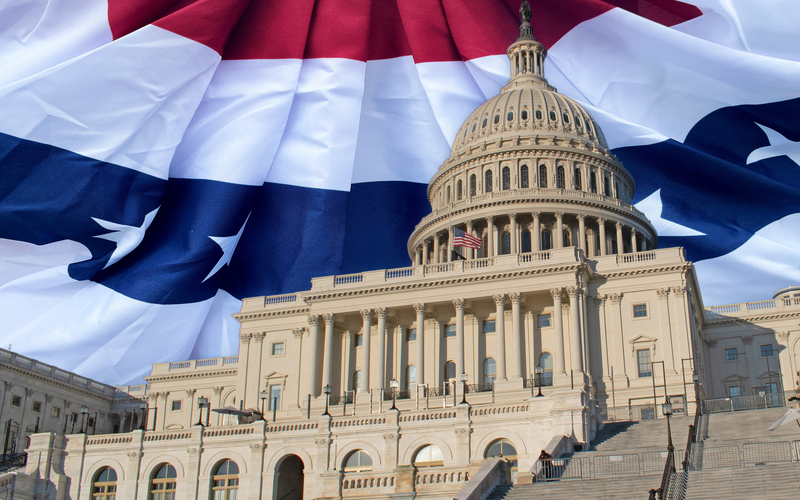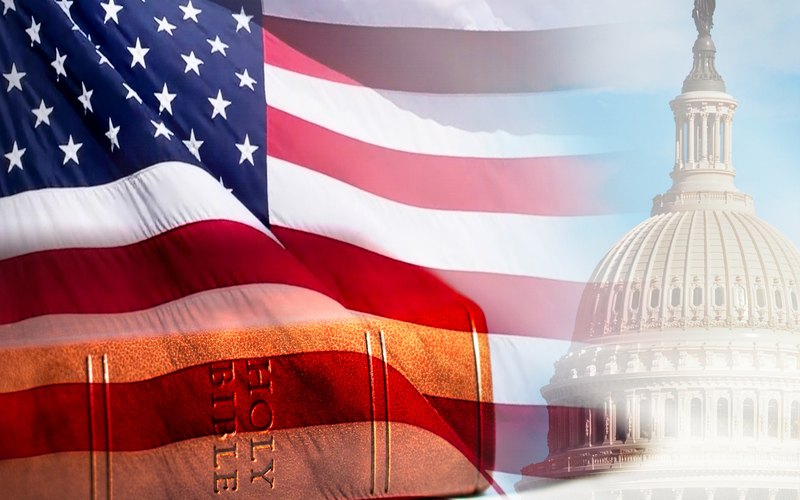Tariffs, Trade ... and the Christian Call to Stewardship
Sign up for a six month free
trial of The Stand Magazine!
As the U.S. reevaluates its trade policies with major global players, tariffs have once again taken center stage in the national economic conversation. Yet for many Americans, the term “tariff” may not be readily understandable; and we may be unsure what position to take, thereby simply defaulting to either for or against Trump.
As in every policy question, we should be informed as Christians so that our view on policy isn’t a matter of political party, but a matter of political philosophy, grounded in the biblical worldview of government. In reality, tariffs – essentially taxes on imported goods – have profound effects on the prices we pay, the jobs we hold, and the values we live by.
From a biblical and economic perspective, how should we think about tariffs … not just economically, but morally? Do they uphold or undermine our call to faithful stewardship, justice, and the dignity of work?
What are tariffs?
A tariff is a tax placed on goods imported from other countries. The idea is simple: by making foreign goods more expensive, tariffs make domestic products more competitive. This can help protect American industries from overseas competitors, but it also risks driving up prices for consumers and provoking retaliatory tariffs from trading partners.
Advocates for tariffs see them as a way to protect American industries and national security. Critics of tariffs see them as economically harmful and ethically misguided.
The case for tariffs
Supporters argue that tariffs are a necessary tool in defending American workers, industries, and national security. In an age of global interdependence, some nations manipulate trade rules, undervalue their currencies, or exploit cheap labor to undercut American manufacturers. Tariffs, they say, level the playing field and ensure that the U.S. isn’t taken advantage of.
Robert Lighthizer, former U.S. Trade Representative in Trump’s first term, defended tariffs as a way to restore balance: “Trade policy is not an end in itself. It is a tool to advance the broader interests of the nation – economic, geopolitical, and social.”
Economist Dani Rodrik of Harvard University, known for his nuanced view of globalization, has argued, “We have pushed globalization too far – to a point where it has become politically and economically counterproductive.” Rodrik suggests that moderate protectionism can help nations preserve their economic and social fabric.
Tariffs can also be used to encourage reshoring of strategic industries – from steel to semiconductors – reducing dependence on adversarial nations. In this view, tariffs serve not just economic but geopolitical interests, which Trump heavily emphasized during his first term.
In this view, tariffs are a form of economic stewardship – guarding the livelihoods of American workers, encouraging local industry, and securing supply chains for critical goods.
The case against tariffs
Opponents argue that tariffs are economically inefficient and morally short-sighted. Notably, many conservatives opposed tariffs prior to the Trump administration’s latest actions. Tariffs often raise prices on everyday goods – harming American consumers, especially the poor. They can hurt American companies that rely on imported components, disrupting supply chains and undermining competitiveness.
Nobel laureate economist Milton Friedman once warned: “The harm that protectionism does is invisible to the eye – it’s what is not produced, not traded, not earned that damages us the most.” Tariffs, he argued, distort free markets and limit the benefits of comparative advantage, where nations trade based on what they produce most efficiently.
Douglas Irwin, a leading trade historian at Dartmouth College, writes, “Trade restrictions are a blunt instrument. While they may help a specific industry, they almost always harm the broader economy by reducing overall efficiency and competitiveness.”
Critics see tariffs as failing the test of stewardship and free markets – creating unintended consequences that burden the poor and stifle innovation.
Economically, tariffs disrupt the principle of comparative advantage, the idea that countries prosper by focusing on what they do best and trading for the rest. This principle undergirds the case for free markets and voluntary exchange – core tenets of classical capitalism – a conservative value.
A biblical worldview on stewardship & trade
The Bible may not prescribe a specific economic system, just as it does not demand a constitutional republic over a democracy, but it offers enduring principles: stewardship, justice, care for the poor, the dignity of work, and the right of property ownership.
Genesis 1:28 calls us to “fill the earth and subdue it,” entrusting us with the responsibility of managing God’s resources wisely. Stewardship, then, includes the design of systems that enable families to thrive, workers to find meaningful labor, and communities to flourish.
Free markets, when guided by moral wisdom, reflect the biblical principles of private property, voluntary exchange, personal responsibility, and honest work. Yet Scripture also warns against exploiting others for profit: “The Lord detests dishonest scales, but accurate weights find favor with him” (Proverbs 11:1) or taking what is earned by another: “A worker is worth his wages” (1 Timothy 5:18).
Tariffs must therefore be evaluated through both an economic (practical) and moral (principle) lens. Do they protect the vulnerable or entrench special interests? Do they secure national resilience or promote isolation? Most importantly, do they serve to protect individual liberty and our God-given rights?
Tariffs are not inherently good or evil. They are tools – sometimes necessary, often risky, and always consequential. Christians should approach the debate with discernment, humility, and knowledge – understanding first the larger principles of a moral economic framework before addressing a specific policy in isolation or favoring it merely because a politician from their party is at the helm.
(Editor's Note: This article was posted first on American Family News HERE.)

Sign up for a free six-month trial of
The Stand Magazine!
Sign up for free to receive notable blogs delivered to your email weekly.



















